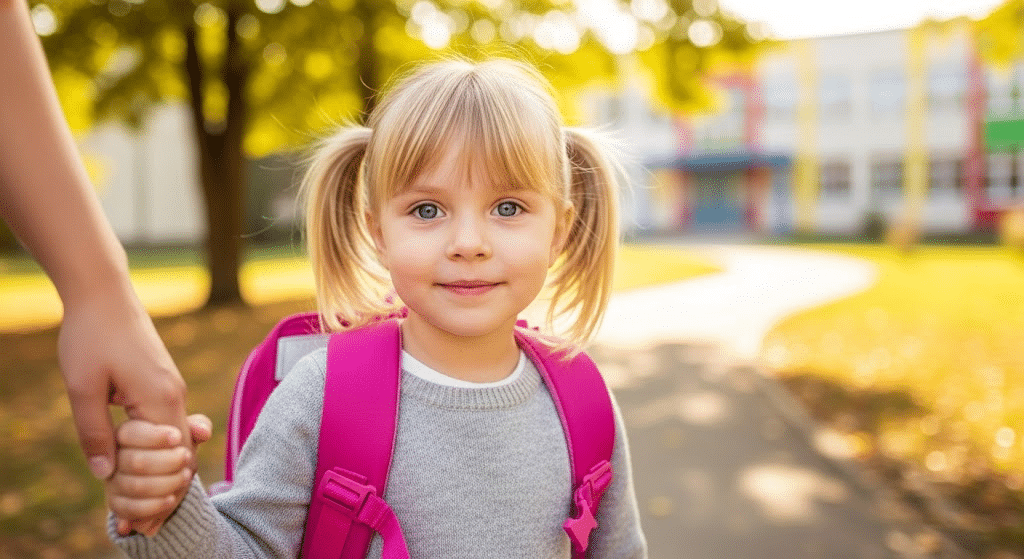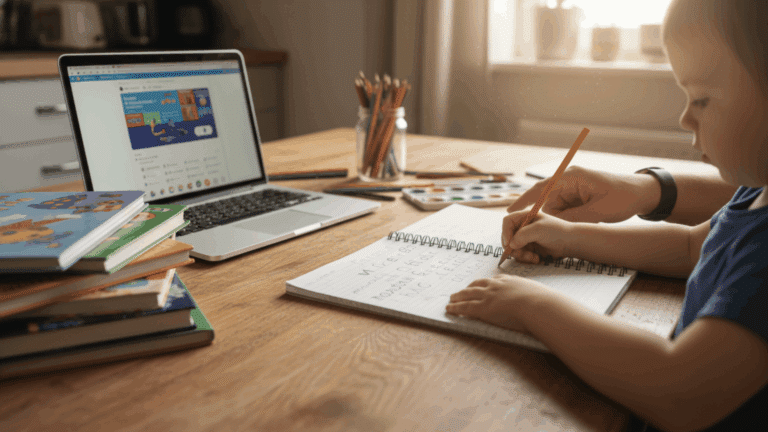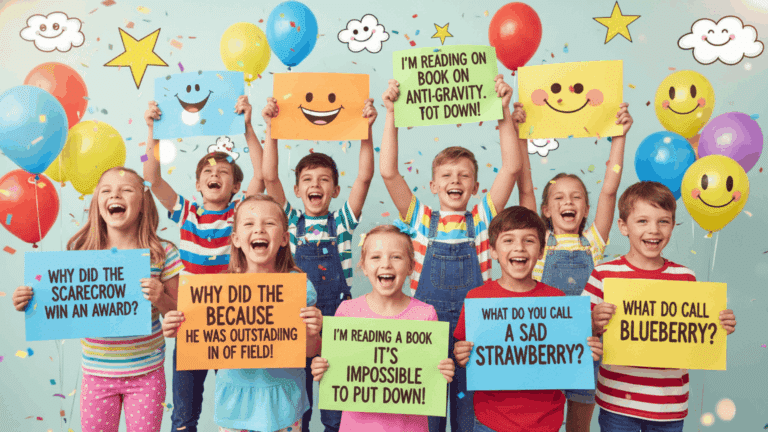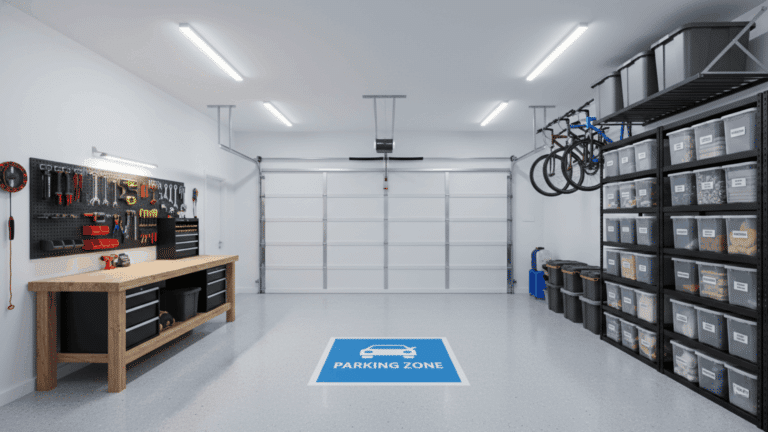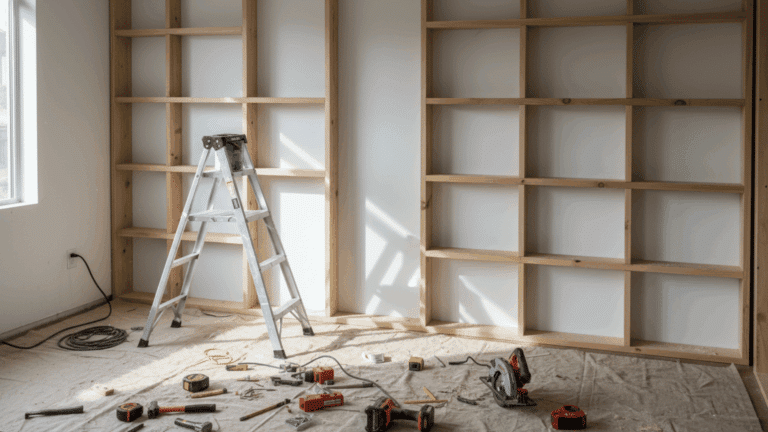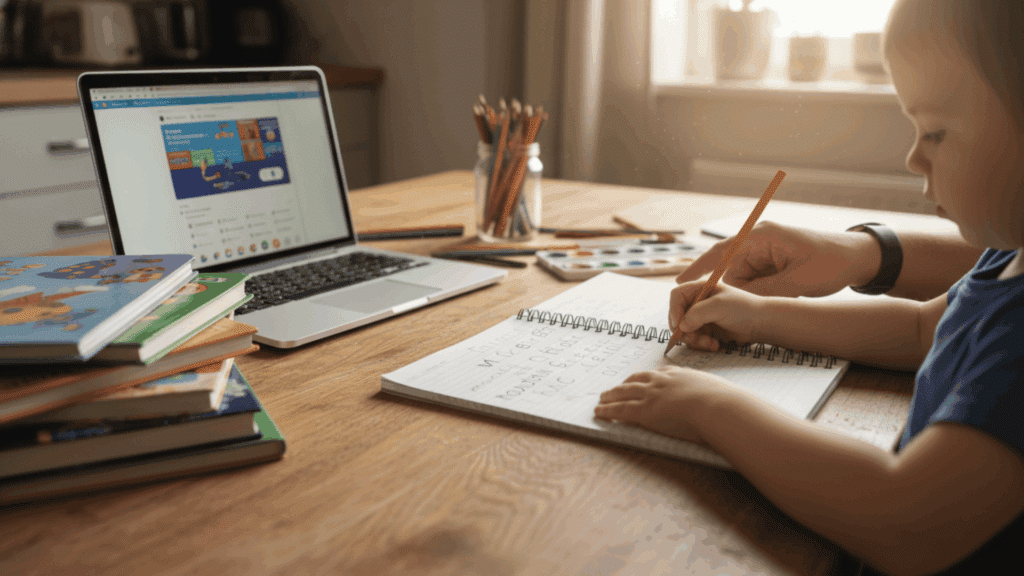Every parent knows that flutter of mixed emotions when their little one is about to start kindergarten.
The excitement is real, but so are the worries. Will they make friends? Can they handle being away from home? These feelings are completely normal, and you’re not alone in having them.
This post will help you prepare your child for their first day of kindergarten with practical steps that actually work.
You’ll learn simple ways to build confidence, create routines, and make this big transition feel less scary for both of you.
The Emotional Significance of the First Day of Kindergarten
Starting kindergarten is a huge step that goes way beyond just attending school.
It’s the moment when children begin forming their relationship with learning, and this experience shapes how they’ll approach education for years to come.
For kids, this transition brings big emotional changes. They’re learning to be independent, make new friends, and trust adults outside their family. Meanwhile, parents are processing their own feelings about letting go and watching their child grow up.
At this age, children are developing crucial social skills and emotional regulation. They’re learning to follow routines, share with others, and handle frustration.
These growth spurts happen alongside the excitement and nervousness that make this time so memorable for families.
Prepping Early for a Strong Kindergarten Kickoff
Getting ready for kindergarten doesn’t happen overnight. Parents can start building their child’s readiness months before school begins.
| Readiness Area | Focus On | Simple Activities | Timeline |
|---|---|---|---|
| Social Readiness | Playdates and group activities | Regular playdates, Practice sharing and taking turns, Basic conversation skills | 3-4 months before |
| Emotional Readiness | Building confidence and managing separation | Short separations with caregivers, Read school-themed books, Talk positively about kindergarten | 2-3 months before |
| Skill Readiness | Fine motor skills and independence | Practice writing their name, Bathroom independence, Putting on shoes and jackets | 1-2 months before |
Things to Do Weeks Before the First Day
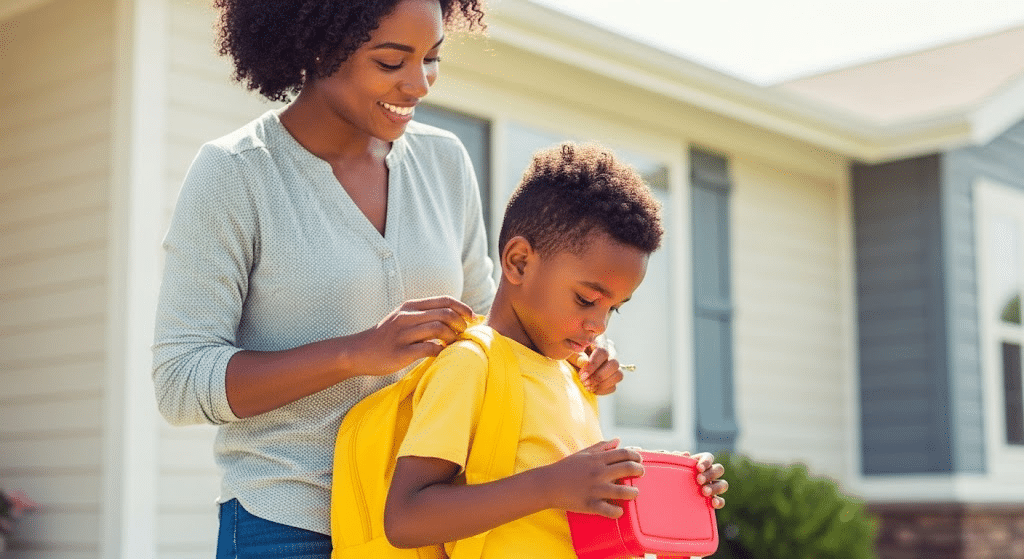
The final weeks before kindergarten start are perfect for hands-on preparation. Parents can use this time to help their child get familiar with what school will actually be like.
Here’s a practical week-by-week plan that makes the transition smoother.
3-4 Weeks Before
- Schedule a school tour if possible. Let the child see their classroom and meet the teacher
- Start reading kindergarten-themed books together at bedtime
- Talk about what a typical school day looks like
2-3 Weeks Before
- Begin practicing the morning routine. Wake up at school time and go through getting dressed, eating breakfast, and gathering supplies.
- Make shopping for school supplies a fun activity. Let the child pick out their backpack and lunchbox.
- Practice the route to school, whether walking or driving.
1-2 Weeks Before
- Choose first-day-of-school clothes together. Make sure they’re comfortable and easy to manage.
- Set up a practice “school day” at home with structured activities.
- Start talking about friends they might meet and activities they’ll do.
Final Week
- Keep routines consistent and avoid big changes.
- Pack the backpack together the night before.
- Focus on excitement rather than worry.
How to Prepare the Night Before Kindergarten Starts
The final hours before kindergarten can make or break how smoothly everything goes. When parents plan ahead and stay calm, children pick up on that positive energy.
Organizing Outfits, Meals, and Supplies the Night Before
Getting everything ready the evening before saves precious time and prevents morning stress.
- Parents should lay out their child’s clothes,
- Pack the backpack with all supplies,
- Place the shoes by the door.
Breakfast can be partially prepped too. Set out bowls, spoons, and cereal boxes on the counter. This simple preparation means the morning flows more smoothly, with more time for connection instead of rushing around.
Morning Affirmations or Goodbye Rituals
Creating a special goodbye routine helps children feel secure and loved as they head to school.
Some families start with positive words like “You’re brave and kind, and you’re going to have a great day.” Others create a special handshake or hug sequence.
The key is keeping it simple and consistent. These small rituals become anchors that children can think about throughout their school day when they need comfort.
Managing Your Own Emotions as a Parent
Parents often feel more nervous than their children on the first day of kindergarten. It’s completely normal to feel sad or worried about this milestone.
The trick is processing these feelings without passing anxiety onto the child.
Taking deep breaths and focusing on the positive aspects of school can help. Some parents plan something special for after drop-off, giving them something to look forward to and helping ease the transition.
What Happens That First Day? Realistic Expectations for Parents
The first day of kindergarten usually starts with a gentle welcome.
Teachers help children find their seats, show them around the classroom, and begin simple activities like coloring or circle time. Most schools keep the day shorter than usual to help kids adjust.
If something feels wrong, parents should reach out to the teacher or the school office right away. Most concerns are normal adjustment issues, but communication helps everyone feel better.
Children often come home tired and possibly cranky after their first day. This is completely normal. They’ve used a lot of energy being brave and learning new things.
Some kids want to talk about everything, while others need quiet time to process. Both reactions are healthy signs that they’re growing up.
How to Talk About the First Day After School
The first day of kindergarten doesn’t end when parents pick up their child.
What happens at home afterward is just as important for helping children process this big milestone and feel proud of their accomplishment.
Questions to ask that spark storytelling
Instead of asking “How was your day?” parents can try specific questions like “What made you smile today?” or “Who did you sit next to at lunch?” These give kids concrete things to talk about and help parents understand their child’s experience.
Signs of stress vs. excitement
Excited children usually talk a lot about their day and seem energized, even if tired. Stressed children often become unusually quiet, clingy, or have trouble sleeping. They might also complain about stomachaches or not wanting to return to school.
Creating an after-school ritual or celebration
Simple traditions like a special snack, reading together, or letting them choose a fun activity help mark this milestone. Having a consistent routine after school helps children decompress and feel secure.
Conclusion
Preparing a child for their first day of kindergarten isn’t about having everything perfect.
It’s about showing love through thoughtful preparation and being present for this important moment.
Parents who focus on connection rather than control often find that their children adapt more easily to new situations.
The most important thing isn’t whether every detail goes according to plan. What matters is that children feel supported and loved as they take this big step.

